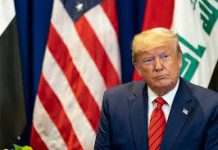
The global financial ecosystem is undergoing a transformative shift as the United Arab Emirates (UAE) courageously steps away from the US dollar in its oil trade transactions. This strategic realignment is in line with the wider objectives of the BRICS economic alliance, which recently welcomed the UAE into its fold.
The transition to local currencies for oil transactions signifies a notable break from the longstanding dollar supremacy in the global oil market.
The BRICS bloc, which includes Brazil, Russia, India, China, and South Africa, has recently broadened its membership to incorporate the UAE, along with Saudi Arabia, Egypt, Ethiopia, Iran, and Argentina. This expansion indicates a rising trend towards de-dollarization among these nations, posing a challenge to the traditional dominance of the US dollar in international trade.
The UAE’s choice to prioritize local currency over the US dollar in new oil deals is a clear manifestation of this sentiment. This isn’t just a simple policy change; it’s a strategic move in the intricate game of global economics.
By aligning with the BRICS nations, the UAE is not only diversifying its economic partnerships but also strengthening its position as a global oil titan. This change could potentially reshuffle the deck in the international oil trade, affecting the dollar’s stronghold and ushering in a new era of currency dynamics in oil transactions.
The UAE’s proactive pursuit of new oil trading partners demonstrates its agility and foresight in navigating the changing economic landscape. The significance of this move is immense.
It’s not just about switching currencies; it’s about changing the very fabric of international oil trade. The potential ripple effects on the US dollar could be significant, marking a shift in the global economic power balance.
Reports suggest that the UAE is exploring potential oil and gas deals with up to 15 countries, including powerhouses like China, Russia, and Egypt, all of whom are members of the BRICS alliance and proponents of de-dollarization.
This isn’t just about diversifying trade; it’s about making a statement on the global stage. The UAE is not just following a trend – it’s setting one. The UAE’s decision to use local currencies in oil trades is part of a larger narrative where nations are increasingly questioning the status quo and exploring alternatives that better serve their economic interests.
This trend towards de-dollarization, particularly in key sectors like oil, could signal a new chapter in global economics, where diversity in currency use in trade becomes the norm rather than the exception.
In conclusion, the UAE’s decision to transition from the US dollar to local currencies in its oil trades is a bold and strategic move that reflects the changing dynamics of the global economic landscape.
This shift, driven by the broader ambitions of the BRICS alliance, could have far-reaching implications for the dominance of the US dollar in international trade.
As the UAE forges new partnerships and navigates this evolving terrain, it positions itself not just as a key player in the oil market, but also as a pioneer in the movement towards a more diversified and dynamic global economy.





